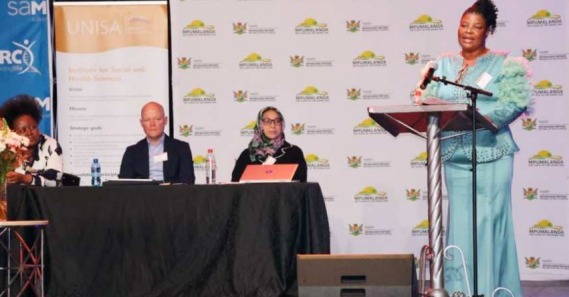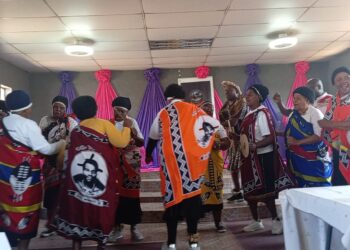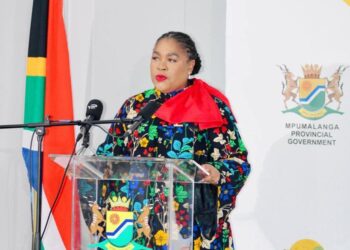EMALAHLENI – In a significant stride towards addressing the escalating issue of violence in Mpumalanga, the Department of Health, in collaboration with the University of South Africa (UNISA) and the South African Medical Research Council (SAMRC), recently convened a colloquium focused on advancing the 2030 Violence Prevention Agenda.
The gathering highlighted the need for enhanced data collection, more robust data systems, and fortified partnerships to combat the alarming surge in violence-related fatalities in the province.
During the event, Dr. Phalane, representing MEC Sasekani Manzini, delivered an enlightening discourse on “Violence, Social Disparities, and the 2030 National Development Plan.” The presentation explained the connection between social inequities and the mounting violence that continues to afflict the region.
Natasha Arendse from UNISA/SAMRC unveiled disconcerting statistics, unveiling a substantial increase in violence mortality rates in Mpumalanga. She emphasised the pressing need for immediate action to reverse this trajectory.
The colloquium featured a panel discussion that delved into the psychological, social, and communal ramifications of violence. Distinguished panelists included Phindile Phakathi from the Department of Health, Nalema Mazibuko from UNISA, Guy Lamb from the University of Stellenbosch, and Nalema Taliep from UNISA/SAMRC.
The discourse spotlighted the devastating impacts of violence on individuals and communities, emphasizing the significance of preventative measures.
A pivotal session concentrated on the essential components for effective violence prevention, including policy formulation, capacity enhancement, and partnership mobilization. Speakers in this session comprised Nomalanga Ngwenya from Sonke Justice, Lorraine Khoza from the Lorraine Khoza Foundation, Claudine Mare from NICRO, and Benita Nel from Childline.
These authorities imparted their insights on fostering a more cohesive and efficient approach to violence prevention.
Lorraine Khoza, from the Lorraine Khoza Foundation, articulated her frustration with the obstacles of coordinating and cooperating with governmental departments and their entities. “We operate at the grassroots level and often feel inundated with cases, yet resources remain beyond our reach,” she expressed. Khoza stressed the necessity for improved access to facilities, such as police stations, and a corruption-free judiciary, as occurrences of closed cases without consent and misplaced documentation are all too prevalent. She cautioned that without these enhancements, the mortality rate could persist in its upward trajectory.
Phephethile Phakathi, Program Manager for Forensic Pathology Services in the Department of Health in Mpumalanga, deliberated on the psychological, social, and community repercussions of violence, specifically accentuating the alarming surge in gunshot wounds in the province.
She advocated for urgent preventive strategies to stem this burgeoning trend.
The colloquium culminated with remarks from Duduzile Mdluli, Deputy Director-General in the Department of Health responsible for Clinical Health Services, underscoring the significance of collective action in the battle against violence in Mpumalanga. The event served as a pivotal platform for stakeholders to collaborate and propel forward the 2030 Violence Prevention Agenda























